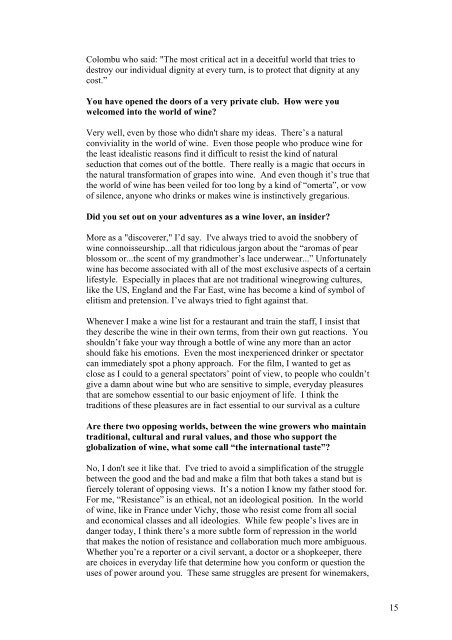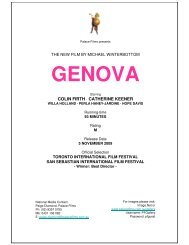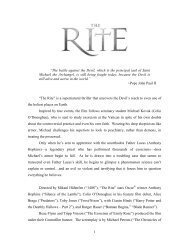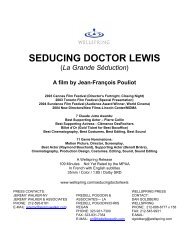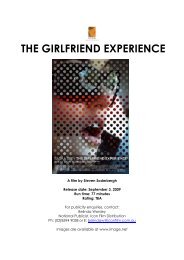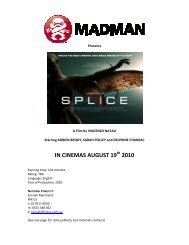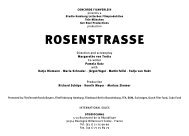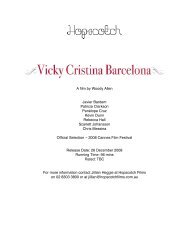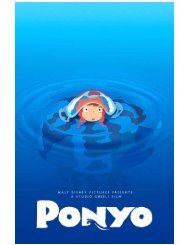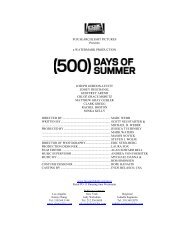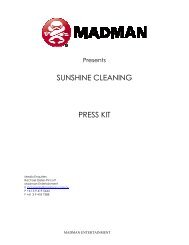Create successful ePaper yourself
Turn your PDF publications into a flip-book with our unique Google optimized e-Paper software.
Colombu who said: "The most critical act in a deceitful world that tries to<br />
destroy our individual dignity at every turn, is to protect that dignity at any<br />
cost.”<br />
You have opened the doors of a very private club. How were you<br />
welcomed into the world of wine?<br />
Very well, even by those who didn't share my ideas. There’s a natural<br />
conviviality in the world of wine. Even those people who produce wine for<br />
the least idealistic reasons find it difficult to resist the kind of natural<br />
seduction that comes out of the bottle. There really is a magic that occurs in<br />
the natural transformation of grapes into wine. And even though it’s true that<br />
the world of wine has been veiled for too long by a kind of “omerta”, or vow<br />
of silence, anyone who drinks or makes wine is instinctively gregarious.<br />
Did you set out on your adventures as a wine lover, an insider?<br />
More as a "discoverer," I’d say. I've always tried to avoid the snobbery of<br />
wine connoisseurship...all that ridiculous jargon about the “aromas of pear<br />
blossom or...the scent of my grandmother’s lace underwear...” Unfortunately<br />
wine has become associated with all of the most exclusive aspects of a certain<br />
lifestyle. Especially in places that are not traditional winegrowing cultures,<br />
like the US, England and the Far East, wine has become a kind of symbol of<br />
elitism and pretension. I’ve always tried to fight against that.<br />
Whenever I make a wine list for a restaurant and train the staff, I insist that<br />
they describe the wine in their own terms, from their own gut reactions. You<br />
shouldn’t fake your way through a bottle of wine any more than an actor<br />
should fake his emotions. Even the most inexperienced drinker or spectator<br />
can immediately spot a phony approach. For the film, I wanted to get as<br />
close as I could to a general spectators’ point of view, to people who couldn’t<br />
give a damn about wine but who are sensitive to simple, everyday pleasures<br />
that are somehow essential to our basic enjoyment of life. I think the<br />
traditions of these pleasures are in fact essential to our survival as a culture<br />
Are there two opposing worlds, between the wine growers who maintain<br />
traditional, cultural and rural values, and those who support the<br />
globalization of wine, what some call “the international taste”?<br />
No, I don't see it like that. I've tried to avoid a simplification of the struggle<br />
between the good and the bad and make a film that both takes a stand but is<br />
fiercely tolerant of opposing views. It’s a notion I know my father stood for.<br />
For me, “Resistance” is an ethical, not an ideological position. In the world<br />
of wine, like in France under Vichy, those who resist come from all social<br />
and economical classes and all ideologies. While few people’s lives are in<br />
danger today, I think there’s a more subtle form of repression in the world<br />
that makes the notion of resistance and collaboration much more ambiguous.<br />
Whether you’re a reporter or a civil servant, a doctor or a shopkeeper, there<br />
are choices in everyday life that determine how you conform or question the<br />
uses of power around you. These same struggles are present for winemakers,<br />
15


